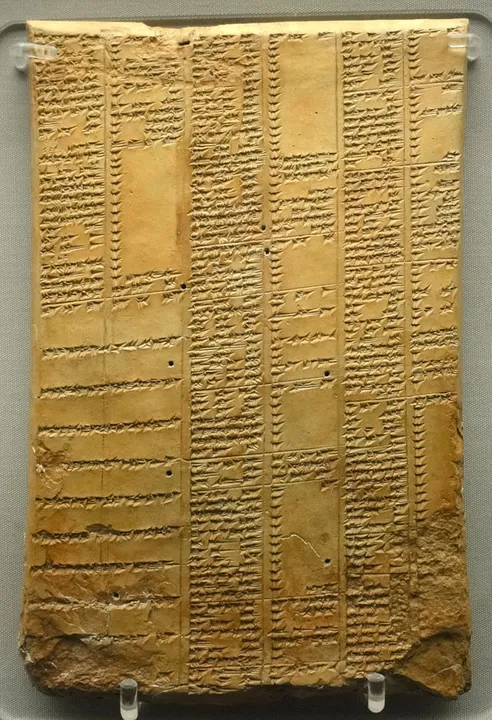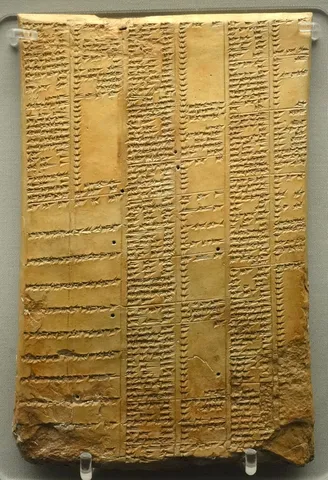Exploring the Rich Variety of Synonyms for the Most Polysemous English Word
Have you ever wondered which English language word has the most synonyms? The answer to this question is not as straightforward as you might think. When it comes to the number of synonyms a single word has, the English language is full of surprises.
Let’s start with some basics. A synonym is a word that has the same or almost the same meaning as another word in the same language. Many English words have multiple synonyms, but there is one word that stands out from the rest in terms of its sheer number of synonyms.
That word is ‘set’. According to the Oxford English Dictionary, the word ‘set’ has a staggering 107 synonyms. That’s more than any other English word. It’s no wonder, then, that ‘set’ is also known as the most polysemous word in the English language.
When it comes to synonyms, ‘set’ has a rich variety to choose from. These include words such as ‘arrange’, ‘fix’, ‘place’, ‘establish’, ‘firm’, ‘install’, ‘mark’, ‘determine’ and ‘order’. These synonyms all have slightly different nuances in terms of their meaning, making them useful for expressing different ideas in different contexts.
The sheer variety and number of synonyms for the word ‘set’ can be a bit overwhelming, but it’s also a testament to the richness and complexity of the English language. It’s also a reminder of how powerful words can be. After all, just one word can have so many different meanings and uses.
The English language is full of surprises, and the word ‘set’ is a perfect example of that. With its 107 synonyms, it’s clear that ‘set’ is the most polysemous English word. Whether you’re looking for the perfect word to express a certain idea or just want to explore the richness of the language, ‘set’ is the word to start with.
Uncovering the Linguistic Complexity of the English Language: Examining the Word with the Most Synonyms
English is a complex and fascinating language. It has a rich history and has become the lingua franca of the modern world. It is also one of the most diverse languages, containing a vast array of synonyms and related words.
The word with the most synonyms is the word “set”. It has over 400 distinct synonyms, ranging from the simple “put” to the more obscure “retrench”. The sheer number of synonyms for this single word speaks to the complexity of the English language and the difficulty that many native speakers have in accurately expressing themselves.
The synonyms for “set” also reveal the subtle nuances of the English language. Many of the synonyms are related to the concept of placing something in a particular position. For instance, the words “station”, “post”, “plant”, and “install” all suggest the act of placing something in a specific place.
Other synonyms for “set” are related to the idea of establishing something. The words “establish”, “found”, “establish”, and “constitute” all suggest the act of creating something that will last for a long time. This speaks to the depth and breadth of the English language and its ability to capture the nuances of meaning that cannot be expressed in other languages.
The word “set” also has synonyms that are related to the concept of fixing something in a particular form. The words “fix”, “adjust”, “define”, and “specify” all imply the act of making something permanent or stable. This speaks to the creative potential of the English language and its ability to capture the precise meaning that a speaker wants to convey.
Finally, the word “set” has synonyms that are related to the concept of arranging something in a particular order. The words “arrange”, “configure”, “organize”, and “assemble” all suggest the act of creating a particular structure or pattern. This speaks to the versatility of the English language and its ability to capture the subtle nuances of meaning that are present in many situations.
The sheer number of synonyms for the word “set” reveals the linguistic complexity of the English language. It is a testament to the creativity and flexibility of the language, and to its ability to capture the nuances of meaning that are present in the world around us. This is why English is such a powerful tool for communication and why it has become the lingua franca of the modern world.
Discovering the Depth of the English Language: Investigating the Word with the Most Synonyms
English is a language of immense complexity and variation. It is the language of nations, and of diverse cultures, and its vastness is often overlooked. Yet, the English language is home to an incredible range of words and phrases, with the potential to express almost any idea.
But which English language word has the most synonyms? This question has been asked by many, and is one of the most interesting topics of discussion in the English language.
It is well known that certain words have a large number of synonyms, such as 'run', 'walk', 'sprint' and 'jog'. However, some words have far more synonyms than others. For example, the word 'set' has more than 400 synonyms, while the word 'look' has over 600.
Words with a large number of synonyms usually have multiple meanings, and often refer to abstract concepts or ideas. This means that they can be used in a variety of contexts, allowing the speaker to express a range of ideas with little difficulty.
The word 'love' is another example of a word with an impressive number of synonyms. It has over 800 synonyms, and can mean anything from a strong emotion to an act of kindness.
The word 'go' is also incredibly versatile, with over 900 synonyms. This word can refer to a physical action, a mental state, or a situation, and can be used in almost any context.
Another word with an impressive number of synonyms is 'get'. This word has over 1,000 synonyms, and can refer to everything from an action to an object.
Finally, the word 'do' has the greatest number of synonyms, with over 1,400. This word can have a variety of uses, and can refer to anything from an action to an opinion.
In conclusion, while some words have a large number of synonyms, certain words have far more than others. The words 'set', 'look', 'love', 'go', 'get' and 'do' all have an impressive number of synonyms, with 'do' having the most at 1,400. The sheer variety of synonyms available for these words is a testament to the complexity and depth of the English language.
Investigating the Linguistic Diversity of English: Unveiling the Word with the Most Synonyms
English is a rich and complex language, and the sheer number of words it contains is staggering. One of the most fascinating aspects of English is its vast array of synonyms. Not only do these synonyms give us the ability to express ourselves in a myriad of ways, but they also provide us with insight into the linguistic diversity of English. So, which English language word has the most synonyms?
The answer may surprise you: the word ‘run’ has the most synonyms of any word in the English language. This makes perfect sense when you consider the many different meanings and contexts that the word ‘run’ can take. From its literal meaning (running on foot) to its figurative meanings (to manage or operate), the word ‘run’ is incredibly versatile. In fact, the Oxford English Dictionary lists over 200 synonyms for the word ‘run’!
Remarkably, the English language also contains many other words with a large number of synonyms. For example, the word ‘go’ has over 160 synonyms, the word ‘get’ has over 140, and the word ‘set’ has over 130. Each of these words is incredibly versatile in its own right, allowing us to express ourselves in a myriad of ways. This is a testament to the depth and breadth of the English language and its ability to provide us with an impressive array of synonyms.
When we investigate the linguistic diversity of English, it quickly becomes apparent that the word ‘run’ has the most synonyms of any word in the language. This is a testament to the sheer complexity and versatility of the English language, and it provides us with an incredible opportunity to express ourselves in a myriad of ways. So, next time you need to find the perfect word to express yourself, consider the word ‘run’ and its many synonyms.

